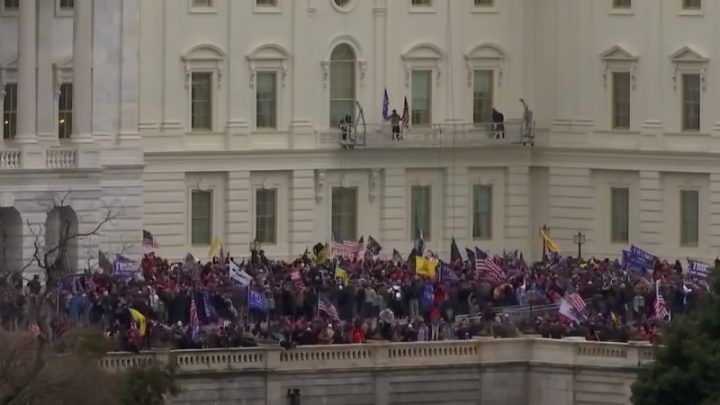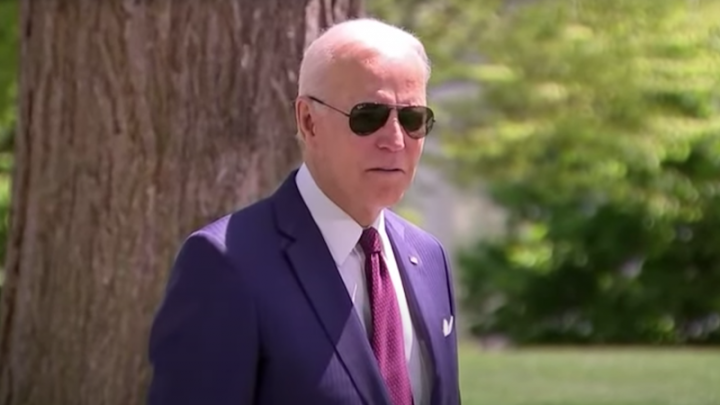
Since Ruth Bader Ginsburg’s death on Friday, many prominent liberals have reversed their previous position that a Supreme Court nominee should be considered even during an election year.
Ginsburg herself is apparently among those who made the about-face.
- According to NPR, Ginsburg just days before her death told her granddaughter Clara Spera: “My most fervent wish is that I will not be replaced until a new president is installed.”
The moment: But in a July 2016 interview with The New York Times, Ginsburg chastised Senate Republicans, who were then in the majority, for refusing to hold a confirmation hearing for then-President Barack Obama’s Supreme Court nominee, Merrick Garland, ahead of the November election.
“That’s their job,” said Ginsburg, a liberal icon. “There’s nothing in the Constitution that says the president stops being president in his last year.”
Also in the interview, Ginsburg revealed her contempt for then-Republican presidential nominee Donald Trump, saying, “I can’t imagine what the country would be — with Donald Trump as our president” and that her late husband would have said it was “time for us to move to New Zealand.”
- She later apologized for those remarks, calling them “ill-advised.”

Hypocrisy?: Leading Democrats have suggested their own similar pivots are justified by Senate Republicans’ obstructionism in 2016.
In a March 2016 New York Times op-ed, then-Vice President Joe Biden argued the Republicans had a “constitutional duty” to give Garland a vote.
- But on Sunday, Biden, now the Democratic presidential nominee, appealed to Republican senators to “follow your conscience” and not “vote to confirm anyone nominated under the circumstances President Trump and Sen. McConnell have created.”
- “If Donald Trump wins the election, then the Senate should move on his selection and weigh the nominee he chooses fairly,” Biden said. “But if I win this election, President Trump’s nominee should be withdrawn and I should be the one who nominates Justice Ginsburg’s successor.”
- The candidate’s current position is a return to the “Biden rule” of 1992, when as a Delaware senator he called on then-President George H.W. Bush to “not name a nominee until after the November election” if a vacancy appeared.
Senate Majority leader Mitch McConnell, a Kentucky Republican, cited the Biden rule in blocking Garland’s nomination to replace the late conservative giant Justice Antonin Scalia.
- But McConnell said in a statement on Friday that he would push ahead with confirming Trump’s nominee — whom the president has promised to name later this week — because, effectively, he can.
- McConnell specified on the Senate floor on Monday that there is enough time to confirm a Supreme Court justice but did not say if the nominee would be considered before or after the Nov. 3 election.
- Senate Judiciary Committee chairman Lindsey Graham — a South Carolina Republican who made a particularly principled case against election-year confirmations in 2016 — said on Monday that the Democrats’ behavior during Supreme Court Justice Brett Kavanaugh’s 2018 nomination had changed his mind.
Some Democrats have threatened to retaliate if Republicans confirm a Supreme Court justice by, among other unprecedented actions, adding and filling seats on the bench once they take power, a practice known as “court packing.”
- But Biden, along with party leaders in the Senate, on Monday played coy on exactly how they planned to get payback.
- When questioned about the possibility of court packing, Sen. Dianne Feinstein, a California Democrat, told reporters, “Ask me when we win the majority.”
- Biden told a local Wisconsin TV station: “It’s a legitimate question. But let me tell you why I’m not going to answer that question: because it will shift all the focus. That’s what [Trump] wants.”



